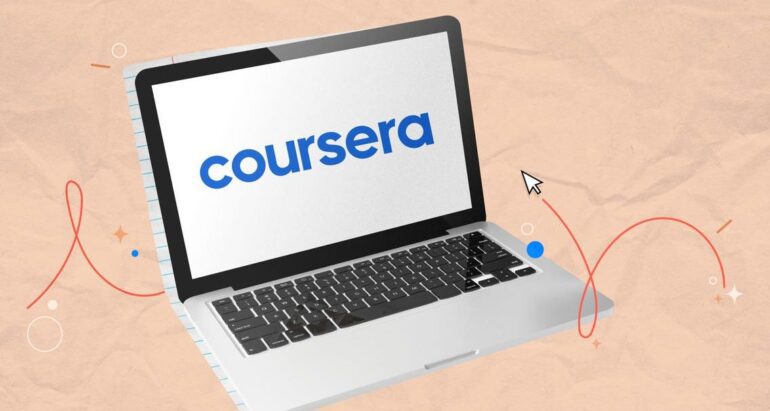TL;DR:
- Coursera welcomed a new user signing up for AI courses every minute on average in 2023.
- CEO Jeff Maggioncalda highlighted generative AI as a pivotal area of interest for upskilling.
- OpenAI’s ChatGPT’s influence triggered a competitive race among companies to launch their chatbot versions.
- Coursera aims to collaborate with AI industry leaders like OpenAI and Google’s DeepMind.
- Contrary to investor concerns, generative AI spurred upskilling, benefiting Coursera.
- Coursera offers over 800 AI courses with 7.4 million enrollments, providing personalized tutoring through its AI assistant, “Coach.”
- Coursera leverages large language models from OpenAI and Google’s Gemini for its AI offerings.
- The company plans to fine-tune existing models with proprietary data.
- Coursera uses AI to translate 4,000 courses into various languages and intends to expand its AI workforce.
Main AI News:
In the dynamic world of edutech, Coursera’s ascent in 2023 was nothing short of remarkable. CEO Jeff Maggioncalda proudly revealed that the platform saw a new user signing up for its artificial intelligence courses every minute on average. This impressive feat underscored the fervor with which individuals were eager to upskill, recognizing the potential unleashed by the burgeoning field of generative AI.
The transformative influence of OpenAI’s ChatGPT has sent shockwaves across industries, igniting a competitive race among companies to launch their versions of this viral chatbot sensation. According to Maggioncalda, the true epicenter of this AI frenzy was generative AI, a technology that held the promise of reshaping countless aspects of our lives. He shared these insights during an interview at the prestigious World Economic Forum in Davos.
Coursera, an edutech trailblazer, had set its sights on collaborating with the frontrunners in the AI race, which included powerhouses like OpenAI and Google’s DeepMind. Fears among investors that generative AI applications might replace ed-tech firms had, in fact, been unfounded. Instead, this technology had catalyzed a surge in upskilling, ultimately benefiting companies like Coursera.
The platform boasted an impressive array of over 800 AI courses, and the enrollment numbers from the past year stood at a staggering 7.4 million. What set Coursera apart was its commitment to personalized education, with every student gaining access to a ChatGPT-like AI assistant named “Coach.” This virtual mentor leveraged the vast capabilities of language models from OpenAI and Google’s Gemini to provide tailored guidance.
Maggioncalda emphasized that Coursera had no intentions of embarking on the arduous journey of building and training its proprietary AI models. Instead, the strategy involved fine-tuning these existing models with proprietary data, ensuring that their AI offerings remained cutting-edge.
The company’s innovative use of AI extended beyond education, with Coursera employing the technology to translate approximately 4,000 courses into multiple languages. Looking ahead, Coursera was gearing up to expand its AI workforce, demonstrating its unwavering commitment to staying at the forefront of the edutech revolution in 2024.
Conclusion:
Coursera’s remarkable success in 2023, with a new user joining its AI courses every minute, demonstrates the growing demand for AI education. The surge in enrollment and the platform’s commitment to personalized tutoring via AI assistants reflect the market’s appetite for upskilling in the field of generative AI. This trend bodes well for the continued growth and relevance of edutech platforms in the ever-evolving landscape of artificial intelligence.

